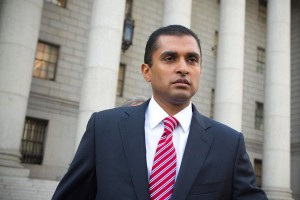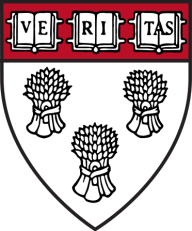The Martoma Trial and Character Evidence in White-Collar Trials
Reading Time: 5 minutes.

In the trial of former SAC hedge fund manager Mathew Martoma, the dispute over getting kicked out of Harvard Law School is worth noting for what evidence we have juries consider at white-collar trials and what we don’t:
In 1999, Mr. Martoma was expelled from Harvard for creating a false transcript when he applied for a clerkship with a federal judge, court papers unsealed on Thursday showed. Mr. Martoma used a computer program to change several grades from B’s to A’s, including one in criminal law, and then sent the forged transcript to 23 judges as part of the application process.
Then, during a Harvard disciplinary hearing to determine whether he should be expelled, Mr. Martoma tried to cover his tracks by creating a fake paper trail that included fabricated emails and a counterfeit report from a computer forensics firm that Mr. Martoma had created to help conceal his activities.
After Harvard expelled him, Mr. Martoma, who at the time was known as Ajay Mathew Thomas, legally changed his name to Mathew Martoma.
The Government wishes to introduce this evidence, it says, not because it’s trying to paint Martoma as a bad guy but rather to prove that he has the computer-forensic capability to destroy real evidence, create bogus evidence and thus mislead the authorities:
The prosecution argues in court papers that Mr. Martoma’s deception is relevant to show that he has the technical knowledge to alter computer files. That could be relevant, prosecutors say, if Mr. Martoma’s lawyers seek to argue he never received a copy of a confidential report that discussed problems with a clinical trial for an experimental Alzheimer’s drug being developed by Elan and Wyeth.
Prosecutors charge that Mr. Martoma recommended that SAC sell its shares in Elan and Wyeth after receiving the report from a key cooperating witness in the case, Dr. Sidney Gilman, and then flying to Ann Arbor, Mich., to discuss the results of the trial with him.
Mr. Martoma’s lawyers at Goodwin Procter, in the run-up to the trial, have raised questions about the government’s failure to find any email evidence that Dr. Gilman sent Mr. Martoma a copy of the report. Dr. Gilman, 81, who received a nonprosecution agreement from the government, is expected to testify that he sent the report to Mr. Martoma and discussed the findings both on the phone and when the two men met a few days before SAC began selling the companies’ shares.
Prosecutors have conceded they have not found any email evidence to support Dr. Gilman’s contention that he sent a copy of the report to Mr. Martoma. But they said Mr. Martoma’s pattern of deception at Harvard is “evidence of the defendant’s capacity to destroy or fabricate electronic forensic evidence.”
In other words, the Government lacks evidence (other than the testimony of the cooperating email-sender) that the report was actually sent to or received by the defendant.

Essentially, the Government wants jurors to conclude that the defendant could have received the report; could have destroyed it; and could have hidden the fact of destruction from investigators because of his (unsuccessful) attempts to do something similar in law school.
This is over-reaching.
First, such questions are usually handled at trial by each side offering computer-forensic experts. The expert offers an opinion on which he or she can be cross-examined, then jurors decide whom to believe. (Of course, if there is nothing an expert can opine on — if old servers are simply gone, for example — then experts are of little help.)
Second, this is “character evidence.” Rule 404 provides:
(a) Character Evidence.
(1)Prohibited Uses. Evidence of a person’s character or character trait is not admissible to prove that on a particular occasion the person acted in accordance with the character or trait.
(2)Exceptions for a Defendant or Victim in a Criminal Case. The following exceptions apply in a criminal case:
(A) a defendant may offer evidence of the defendant’s pertinent trait, and if the evidence is admitted, the prosecutor may offer evidence to rebut it;
(B) subject to the limitations in Rule 412, a defendant may offer evidence of an alleged victim’s pertinent trait, and if the evidence is admitted, the prosecutor may:
(i) offer evidence to rebut it; and
(ii) offer evidence of the defendant’s same trait; and
(C) in a homicide case, the prosecutor may offer evidence of the alleged victim’s trait of peacefulness to rebut evidence that the victim was the first aggressor.
(3)Exceptions for a Witness. Evidence of a witness’s character may be admitted under Rules 607, 608, and 609.
(b) Crimes, Wrongs, or Other Acts.
(1) Prohibited Uses. Evidence of a crime, wrong, or other act is not admissible to prove a person’s character in order to show that on a particular occasion the person acted in accordance with the character.
(2) Permitted Uses; Notice in a Criminal Case. This evidence may be admissible for another purpose, such as proving motive, opportunity, intent, preparation, plan, knowledge, identity, absence of mistake, or lack of accident. On request by a defendant in a criminal case, the prosecutor must:
(A) provide reasonable notice of the general nature of any such evidence that the prosecutor intends to offer at trial; and
(B) do so before trial — or during trial if the court, for good cause, excuses lack of pretrial notice.
Rule 608 is also pertinent:
(a) Reputation or Opinion Evidence. A witness’s credibility may be attacked or supported by testimony about the witness’s reputation for having a character for truthfulness or untruthfulness, or by testimony in the form of an opinion about that character. But evidence of truthful character is admissible only after the witness’s character for truthfulness has been attacked.
(b) Specific Instances of Conduct. Except for a criminal conviction under Rule 609, extrinsic evidence is not admissible to prove specific instances of a witness’s conduct in order to attack or support the witness’s character for truthfulness. But the court may, on cross-examination, allow them to be inquired into if they are probative of the character for truthfulness or untruthfulness of:
(1) the witness; or
(2) another witness whose character the witness being cross-examined has testified about.
By testifying on another matter, a witness does not waive any privilege against self-incrimination for testimony that relates only to the witness’s character for truthfulness.
The fact that the defendant points out the prosecution’s lack of evidence — that is,there’s apparently no evidence that Martoma received the email to which the report was attached — does not magically turn that same lack of evidence into admissible 404(b) evidence of “motive, opportunity, intent, preparation, plan, knowledge, identity, absence of mistake, or lack of accident.”

Plus, the prejudicial effect of the evidence — here’s a guy who went to Harvard Law School, a fancy institution, where he cheated and tried to cover it up, then ended up at SAC, another fancy organization, and is nowaccused of cheating — would grossly outweigh any probative value.